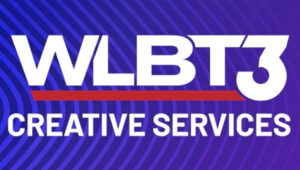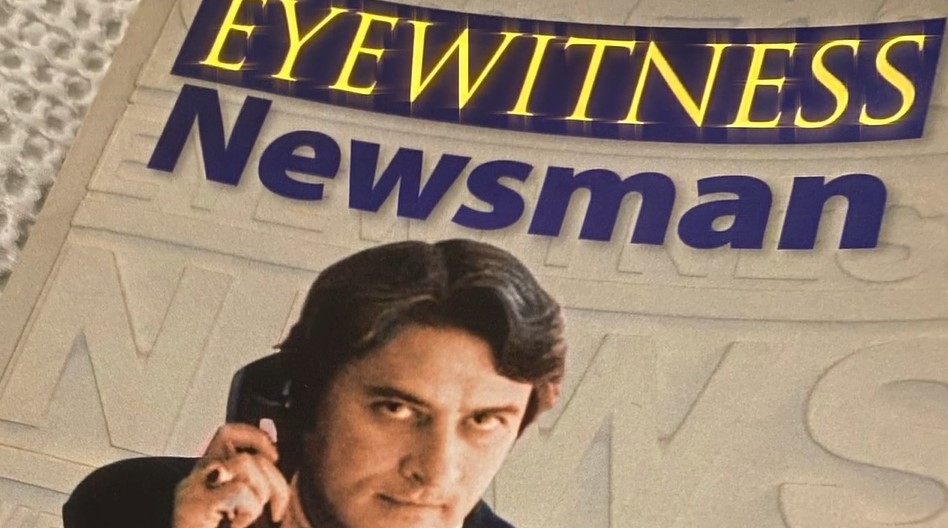Talking TV: How News Content Authentication Is Battling AI

In this repeat of the Talking TV episode from Aug. 18, Pia Blumenthal, design manager for the AContent Authenticity Initiative at Adobe and co-chair of the UX Task Force at the Coalition for Content, Provenance and Authenticity, explains how the proliferation of generative AI is making that job a lot harder. A full transcript of the conversation is included.

Pia Blumenthal, design manager for the AContent Authenticity Initiative at Adobe and co-chair of the UX Task Force at the Coalition for Content, Provenance and Authenticity, is on the front lines against news disinformation. She explains how the proliferation of generative AI is making that job a lot harder. A full transcript of the conversation is included.
ATEME, a provider of video delivery solutions for broadcast, cable TV, DTH, IPTV and OTT, said today it has achieved breakthrough performance increase of its video encoders. “By closely collaborating […]

Fans of Liverpool and Manchester City are set to watch this season’s Premier League title race from “inside the game”, even through the eyes of players, thanks to the latest in broadcasting innovation. True View, used in TV coverage of Sunday’s Super Bowl and also to bring fans courtside in NBA, will allow 360-degree replays of all the key moments.
 It’s time to answer the most important question on everyone’s mind after Super Bowl LI: what type of regulatory approvals and deviations were required to enable Intel’s massive display of 300 choreographed unmanned drones that kicked off Lady Gaga’s Super Bowl halftime show?
It’s time to answer the most important question on everyone’s mind after Super Bowl LI: what type of regulatory approvals and deviations were required to enable Intel’s massive display of 300 choreographed unmanned drones that kicked off Lady Gaga’s Super Bowl halftime show?
Verizon Bets On The Future Of Television
 Verizon’s purchase on Tuesday of Intel’s OnCue television service foreshadows a day when a paying television subscriber will be able to watch any channel on any device, whenever and wherever they want. It’s been a long time coming.
Verizon’s purchase on Tuesday of Intel’s OnCue television service foreshadows a day when a paying television subscriber will be able to watch any channel on any device, whenever and wherever they want. It’s been a long time coming.
 Intel Corp. is asking about $500 million for OnCue, the online pay TV service that the world’s largest chipmaker developed before dialing back its ambitions, according to people with knowledge of the process. Intel is seeking to secure a sale by year-end, said the people, who asked not to be identified because the talks are private. One suitor, Verizon Communications, has begun talking with owners of broadcast and cable channels about terms for a streaming TV service, the people said.
Intel Corp. is asking about $500 million for OnCue, the online pay TV service that the world’s largest chipmaker developed before dialing back its ambitions, according to people with knowledge of the process. Intel is seeking to secure a sale by year-end, said the people, who asked not to be identified because the talks are private. One suitor, Verizon Communications, has begun talking with owners of broadcast and cable channels about terms for a streaming TV service, the people said.
Television services delivered via the Internet by companies like Intel and Sony could someday transform how Americans watch TV shows. But the services have to get off the ground first, and there are new doubts about whether that is going to happen. Intel’s goal of introducing its OnCue service by the end of the year has been scrapped, and Sony, like Intel, has yet to announce deals to carry any channels.
Intel, Apple and others push new technologies to take control of the living room. However, these companies working on new Internet-based services are widely expected to face tough sledding in negotiating rights for video content.
 Intel Corp., the computer-chip giant, will enter a crowded field of companies offering alternatives t0 traditional pay TV services. This year, the Santa Clara, Calif., company plans to sell a set-top box that streams content from the Internet onto a TV. Intel’s self-install set-top box will come with a bundle of live local TV, ad-supported cable channels, and premium cable. There will be no need for professional installers, an Intel spokesman says.
Intel Corp., the computer-chip giant, will enter a crowded field of companies offering alternatives t0 traditional pay TV services. This year, the Santa Clara, Calif., company plans to sell a set-top box that streams content from the Internet onto a TV. Intel’s self-install set-top box will come with a bundle of live local TV, ad-supported cable channels, and premium cable. There will be no need for professional installers, an Intel spokesman says.
Intel’s plan to create a virtual cable service is running up against a barricade being guarded by cable and satellite distributors.
 Intel has committed at least $2 billion to TV programming licensing deals for its forthcoming broadband TV service, according to sources familiar with the chipmaker’s initiative, but so far it has failed to officially sign any major content companies.
Intel has committed at least $2 billion to TV programming licensing deals for its forthcoming broadband TV service, according to sources familiar with the chipmaker’s initiative, but so far it has failed to officially sign any major content companies.
Jim Baldwin, vice president and general manager of engineering for Intel Media, has left the company to pursue other opportunities.
For the past year or so, Intel has also quietly been working on a top-secret set-top box that could not only be better than what Apple, Google and even Microsoft offer today, but also kill the cable industry as we know it. This set-top box, said by industry insiders to be available to a limited beta of customers in March, will offer cable channels delivered “over the top” to televisions anywhere there is an Internet connection regardless of provider. For the first time, consumers will be able to subscribe to content per channel.
New markets including home entertainment will be major sources of growth for Intel Corp as more gadgets become connected to the Internet and drive demand for powerful data centers, the top chipmaker’s CFO Stacy Smith says.
Intel is counting on facial-recognition technology for targeted ads and a team of veteran entertainment dealmakers to win over reluctant media partners for its new virtual television service. But so far it’s proving a challenge to get the service off the ground, thanks to an unwillingness on the part of major media content providers to let Intel unbundle and license specific networks and shows at a discount.
Intel is talking to U.S. media companies about an internet-based TV service powered by its chips, in a dramatic departure for the world’s leading semiconductor company.
Spectrum Auction Would Be A Winner
 Americans’ personal, social and professional lives increasingly depend on the speed and performance of ever smaller and faster hand-held tablets, phones and similar computer devices. To keep pace with technology, public policy officials and lawmakers can help their constituents — and drive innovation forward — by addressing the huge shortfall in available spectrum in the United States. Selling spectrum would help advanced technology and benefit the government’s bottom line.
Americans’ personal, social and professional lives increasingly depend on the speed and performance of ever smaller and faster hand-held tablets, phones and similar computer devices. To keep pace with technology, public policy officials and lawmakers can help their constituents — and drive innovation forward — by addressing the huge shortfall in available spectrum in the United States. Selling spectrum would help advanced technology and benefit the government’s bottom line.
Stations Face ‘Formidable’ Spectrum Lobby
It’s an uphill fight for broadcasters trying to stall or mitigate the FCC’s plan to reclaim a large hunk of broadcast spectrum and repurpose it for wireless broadband. The plan enjoys the backing of some of the biggest names in wireless, consumer electronics and the high-tech world, not to mention the White House and fiscal conservatives on the Hill.


































